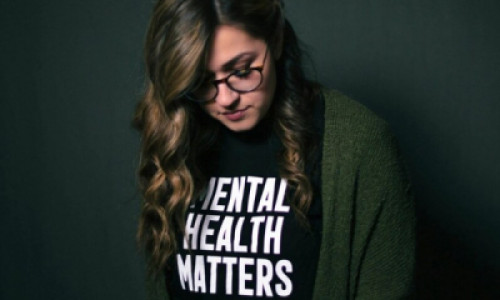If you’re looking for mental health and wellness resources, we’ve got you covered. From everyday actions that support your well-being and guidance on self-advocacy, to information on early interventions and specialized medical treatment options, this resource page will guide you on the first steps in your healing journey.
Asking for help – or helping someone else
It can be challenging to ask for help, but having an advocate can make it easier.
An advocate is someone who supports you, helps articulate your needs, and can speak on your behalf when you’re unable to do so. Additionally, you can also learn to be your own advocate, empowering yourself to seek the help you need.
Talking to friends and family about mental health
Choose a communication method that feels right for you, whether it’s face-to-face, a phone call, email, or letter.
Find the right time and place. There may not be a ‘good’ time, but it can help if you’re somewhere quiet, comfortable and unlikely to be disturbed.
Practice what you want to say. Consider starting with: "I’ve not been feeling like myself lately" or "I’m finding it hard to cope right now."
Share information and examples that help explain your feelings, such as descriptions from a book, information you found online, or lines from a movie.
Be honest and open to help others understand how you’re feeling.
Suggest ways they can help, whether it’s emotional support or practical assistance.
Don’t expect too much from one conversation. Give them time to process and revisit the conversation if needed.
What does an advocate do?
Whether you’re looking for support or looking to be there for another person, here are some recommendations that might be useful for mental health advocates:
An advocate:
- Listens to your views and concerns
- Helps you explore your options and rights (without pressuring you)
- Provides information to help you make informed decisions
- Helps you contact the right people, or contacts them on your behalf
- Goes with you and supports you in meetings or appointments (maybe ensuring you cover all the points you wanted to cover, explaining your options without giving their opinion, or helping keep you safe during the meeting, etc.)
An advocate doesn’t:
- Give you their personal opinion or make it about them
- Try to solve problems and make decisions for you
- Make judgments about you
- Share your story with anyone else without your permission
Finding the help you need
Whether you’re seeking to develop lifelong skills or require specialized medical treatment, a range of options exists to support your mental health and well-being. Embarking on this journey toward improvement, you may discover that a combination of approaches best suits your needs. However, the most crucial step is to begin; as you do, you’ll find the path that’s right for you.

Everyday well-being
There are plenty of things you can do, right now, that can have a positive impact on your mental well-being. Many of these are free and don’t require outside intervention.

Early interventions and treatment
Expert advice comes in many forms, from digital apps and podcasts to support groups and one-on-tone talk therapy.

Specialized medical treatment
If you’re looking for other kinds of support, including medical interventions, working with experts gives you access to additional options that may not be available otherwise.
Mental health support that’s right for you
Each of us has different needs when it comes to our mental health. But, many times, it starts with good information. Check the links below to find more support and information – and make a connection if it feels right to you.
CASP provides resources and support to reduce the impact of suicide in Canada. They work towards raising awareness and advocating for suicide prevention.

CAMH is a leading mental health and addiction research center in Canada, providing resources, education, and advocacy initiatives. CAMH provides a wide range of clinical care services for patients of all ages and families.

CAMIMH is a coalition of mental health organizations working together to advocate for mental health policy and awareness.

CMHA Ontario offers tailored support and resources for Lesbian, Gay, Bisexual, Trans & Queer identified individuals, addressing their specific mental health needs with understanding and inclusivity.

The First Nations Health Authority provides resources and initiatives to support mental wellness in Indigenous communities in British Columbia.

The Hope for Wellness Helpline is available to all Indigenous people across Canada. Experienced and culturally competent counsellors are reachable by telephone and online ‘chat’ 24 hours a day, 7 days a week.

Kids Help Phone provides 24/7 counseling and support for young people across Canada, offering online and telephone services.

The Lesbian, Gay, Bi & Trans Youthline offers free peer support for youth aged 26 and under.

The Mental Health Coalition Resource Library provides a wealth of mental health resources, fostering awareness, support, and education.

The National Institute of Mental Health (NIMH) is the lead federal agency in the US for research on mental disorders. NIMH is one of the 27 Institutes and Centers that make up the National Institutes of Health (NIH), the largest biomedical research agency in the world.

PFLAG is a resource for 2SLGBTQI+ people and their families.

A national lesbian, gay, bisexual and trans (LGBT) human rights organization, advancing equality, diversity, education and justice.

Disclaimer